Mozambique: World Bank disburses US$201 million to finance health system preparedness - Watch
Mozambique must “have learned the lesson”: Not to count on future revenues – WATCH

File photo / Federico Bonaglia
The Deputy Director of the OECD’s Development Co-operation Directorate Federico Bonaglia believes that Mozambique must learn from the mistakes of the past and wait for the revenue from the extractive sectors it is counting on to start coming in.
“What we see now and since the debt was disclosed is that people are already anticipating revenues that are not there yet as an incentive to consume and spend more. Hopefully they will learn the lesson of containing the unbridled spending of the last years,” Federico Bonaglia said.
In an interview with Lusa in Lisbon on the sidelines of the presentation of the “African Economic Outlook 2017: Entrepreneurship and Industrialisation” report, the Italian also commented on the relations between the government of Mozambique and the International Monetary Fund, whose requirement for full disclosure of the hidden debt audit report is meeting some reluctance.
“Mozambique is in a critical situation in terms of public debt. There are discussions on how to deal with this high level of indebtedness, and the IMF is waiting for the government to do something,” Bonaglia said.
Asked about the solution that the government and financial institutions need to find for the US$1.4 billion in debt that is currently not being repaid, in addition to the more than US$727 million in government debt securities whose instalments are also not being paid, putting the country in default, Bonaglia replied:
“We are not an international financial institution, but from our point of view, and after the discussion we had with the Portuguese-speaking central bankers [meeting in Lisbon this week], what we understand is that the government and the banks are making efforts to increase transparency and disseminate information, but this experience is very complicated.”
“Prices of raw materials will go up a bit and bring in new energy, new breath, but it is clear to Angola and Mozambique that there is a great need to diversify the economy, particularly in Angola, because Mozambique already has some depth in agriculture, aluminium and coal.”
The Organisation for Economic Co-operation and Development (OECD), African Development Bank and United Nations assessment in the report released in August points to a slowdown in gross domestic product (GDP) from 6.6 percent in 2015 to 4.3 percent last year, with a recovery to 5.5 percent this year and an acceleration to 6.8 percent in 2018.
The document says the reduction in GDP last year is explained by “greater budgetary constraint and a fall in foreign direct investment, also due to the hidden debt crisis”, warning that “although the incidence of poverty has declined, the number of poor people remains almost the same, in an environment of increasing inequality”.
The African Economic Outlook 2017: Entrepreneurship and Industrialisation can be accessed here
See below a video with Federico Bonagia’s full presentation in Lisbon, followed by a debate with Salimo Abdula, chairman of the CPLP Business Association, André Magrinho, deputy chairman of the Portuguese Industrial Association (AIP) and Guilherme Colares Pereira, Social Innovation Director of the EDP Foundation, moderated by ISEG’s Professor Manuel Ennes Ferreira. Vidoe by CPLP – Comunidade dos Países de Língua Portuguesa, streamed live on 9 Oct 2017.


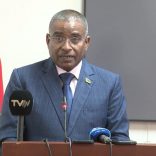
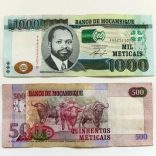
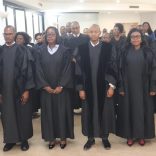
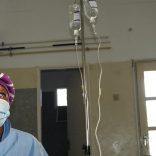

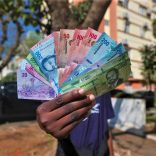





Leave a Reply
Be the First to Comment!
You must be logged in to post a comment.
You must be logged in to post a comment.